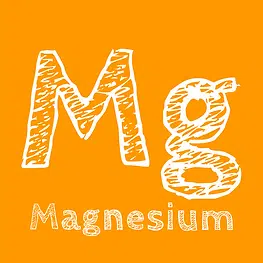By Corey Howard, MD, FACP



What is Magnesium?
Magnesium is a vital mineral that plays a crucial role in many physiological functions in the body. It is involved in over 300 biochemical reactions and is essential for maintaining overall health.
Functions of Magnesium
- Energy Production: Magnesium is necessary for the production of adenosine triphosphate (ATP), the primary energy carrier in cells. It helps convert food into energy.
- Muscle and Nerve Function: Magnesium plays a key role in the function of muscles and nerves, including regulating muscle contractions and nerve impulses. It helps prevent muscle cramps and spasms.
- Bone Health: About 60% of the body’s magnesium is stored in the bones. It works alongside calcium and vitamin D to maintain bone density and prevent osteoporosis.
- Heart Health: Magnesium helps regulate heart rhythm and supports cardiovascular health. It helps maintain normal blood pressure and reduces the risk of heart disease.
- Blood Sugar Control: Magnesium aids in glucose metabolism and insulin regulation, which can help prevent or manage type 2 diabetes.
- Protein Synthesis: Magnesium is involved in the synthesis of proteins, which are necessary for cell growth, repair, and maintenance.
- Nervous System Regulation: It helps regulate neurotransmitters, which are chemicals that transmit signals in the brain, supporting mental health and reducing stress and anxiety.
Natural Sources of Magnesium
Before considering supplements, you can obtain magnesium from a variety of natural food sources. Here are some of the best sources:
- Leafy Green Vegetables
- Examples: Spinach, Swiss chard, kale.
- Magnesium Content: A cup of cooked spinach contains about 157 mg of magnesium.
- Nuts and Seeds
- Examples: Almonds, cashews, pumpkin seeds, chia seeds.
- Magnesium Content: An ounce of almonds contains about 80 mg of magnesium; an ounce of pumpkin seeds contains about 150 mg.
- Whole Grains
- Examples: Brown rice, quinoa, oats, whole wheat.
- Magnesium Content: A cup of cooked quinoa contains about 118 mg of magnesium.
- Legumes
- Examples: Black beans, chickpeas, lentils, kidney beans.
- Magnesium Content: A cup of cooked black beans contains about 120 mg of magnesium.
- Fish
- Examples: Mackerel, salmon, halibut.
- Magnesium Content: A 3-ounce serving of mackerel contains about 82 mg of magnesium.
- Avocados
- Magnesium Content: One medium avocado contains about 58 mg of magnesium.
- Bananas
- Magnesium Content: One medium avocado contains about 58 mg of magnesium.
- Dark Chocolate
- Magnesium Content: One ounce of dark chocolate (70-85% cocoa) contains about 64 mg of magnesium.
- Tofu
- Magnesium Content: Half a cup of tofu contains about 37 mg of magnesium.
- Dairy Products
- Examples: Milk, yogurt.
- Magnesium Content: A cup of low-fat yogurt contains about 42 mg of magnesium.
When to Consider Magnesium Supplements
If you’re unable to get enough magnesium from your diet, or if you have a higher need due to certain conditions (like stress, heavy physical activity, or certain health conditions), you might consider magnesium supplements. However, it’s generally recommended to try to meet your magnesium needs through diet first, as whole foods provide other essential nutrients and fiber as well.
Conclusion
Magnesium is essential for many bodily functions, including energy production, muscle and nerve function, bone health, heart health, blood sugar control, protein synthesis, and nervous system regulation. You can naturally increase your magnesium intake by incorporating more leafy greens, nuts, seeds, whole grains, legumes, fish, avocados, bananas, dark chocolate, tofu, and dairy products into your diet. Supplements should be considered if dietary intake is insufficient, and it’s always a good idea to consult with a healthcare provider before starting any new supplementation regimen.
How Much Magnesium Do I Need?
The amount of magnesium you need depends on several factors, including age, sex, and life stage. Below are the general Recommended Dietary Allowances (RDAs) for magnesium, which represent the daily intake levels considered sufficient to meet the nutritional needs of most people. Please note that the RDA is not the same as optimal nutrition for the body. Optimal nutrition means you likely need more that what is recommended. Please discuss with Dr. Howard or your physician any questions or concerns you might have.
Recommended Dietary Allowance (RDA) for Magnesium
For Adults
- Men (19-30 years): 400 mg per day
- Women (19-30 years): 310 mg per day
- Men (31 years and older): 420 mg per day
- Women (31 years and older): 320 mg per day
For Pregnant Women
- Ages 19-30: 350 mg per day
- Ages 31 and older: 360 mg per day
For Breastfeeding Women
- Ages 19-30: 310 mg per day
- Ages 31 and older: 320 mg per day
For Children and Adolescents
- 1-3 years: 80 mg per day
- 4-8 years: 130 mg per day
- 9-13 years: 240 mg per day
- Boys (14-18 years): 410 mg per day
- Girls (14-18 years): 360 mg per day
Considerations
- Dietary Sources: If you consume a balanced diet that includes a variety of magnesium-rich foods (like leafy greens, nuts, seeds, whole grains, legumes, and fish), you are likely to meet or exceed these recommendations naturally.
- Increased Needs: Some people may have higher magnesium needs due to factors like physical activity, stress, certain health conditions (e.g., type 2 diabetes, gastrointestinal disorders), or certain medications (e.g., diuretics).
- Upper Limit: The Tolerable Upper Intake Level (UL) for supplemental magnesium is 350 mg per day for adults, but this does not include magnesium obtained from food. High doses of magnesium from supplements or medications can cause side effects, such as diarrhea, nausea, and abdominal cramping.
Special Situations
- Older Adults: Magnesium absorption tends to decrease with age, and older adults may require higher intakes to maintain adequate levels.
- Athletes: Those who engage in intense physical activity may have higher magnesium needs due to losses through sweat and increased metabolic demand.
Conclusion
For most adults, an intake of 310-420 mg of magnesium per day is adequate. You can generally meet your magnesium needs through a well-balanced diet rich in magnesium-containing foods. If you are considering magnesium supplements, or if you have specific health conditions that may require different intake levels, it’s a good idea to consult with a healthcare provider to determine the right amount for your individual needs. Again, I remind you that the recommended daily allowance is not the same as optimal nutritional requirements. This is very individualized.
Magnesium comes in various forms, each with different absorption rates and specific benefits. Here’s an overview of some of the most common forms of magnesium and their uses:
- Magnesium Citrate
- Uses: Magnesium citrate is commonly used as a dietary supplement to increase magnesium levels. It’s also used as a laxative, particularly for relieving constipation.
- Absorption: It has good bioavailability, meaning it is well-absorbed by the body.
- Additional Notes: Magnesium citrate is often recommended for those who need to correct a magnesium deficiency or improve digestion.
- Magnesium Oxide
- Uses: This form is often used to treat indigestion and heartburn, and as a short-term remedy for constipation. It is also a common supplement to increase magnesium levels.
- Absorption: It has lower bioavailability compared to other forms, meaning the body absorbs it less efficiently.
- Additional Notes: Despite its lower absorption rate, it is often used because it contains a high percentage of elemental magnesium.
- Magnesium Glycinate
- Uses: Magnesium glycinate is often used for its calming effects, making it a good option for those dealing with anxiety, stress, or insomnia. It is also used for managing chronic pain conditions, such as fibromyalgia. It is also very good for sleep.
- Absorption: It has high bioavailability and is gentle on the stomach, making it less likely to cause diarrhea compared to other forms.
- Additional Notes: This form is well-tolerated and recommended for long-term supplementation.
- Magnesium Malate
- Uses: This form is used to support energy production and is often recommended for those suffering from chronic fatigue or fibromyalgia. It is also helpful for muscle pain.
- Absorption: It has good bioavailability and is known to be easily absorbed.
- Additional Notes: Magnesium malate is often used to alleviate symptoms of fatigue and muscle pain.
- Magnesium L-Threonate
- Uses: This form is specifically noted for its potential benefits for brain health. It is used to improve cognitive function, memory, and may help in the prevention of age-related cognitive decline.
- Absorption: It crosses the blood-brain barrier effectively, making it particularly beneficial for neurological functions.
- Additional Notes: Magnesium L-Threonate is often recommended for those looking to support cognitive health.
- Magnesium Sulfate
- Uses: Commonly known as Epsom salt, magnesium sulfate is used primarily for soaking in baths to relieve muscle soreness and reduce inflammation. It is also used in certain medical settings to treat low magnesium levels or preeclampsia during pregnancy.
- Absorption: When used in baths, absorption through the skin is debated, but oral forms are typically less bioavailable.
- Additional Notes: It is often used externally rather than as a dietary supplement.
- Magnesium Chloride
- Uses: Magnesium chloride is used for improving overall magnesium levels and is also believed to have benefits for skin health when used topically. It is also used to treat magnesium deficiency.
- Absorption: It has good bioavailability, especially when taken orally.
- Additional Notes: This form is often recommended for people who need a boost in magnesium levels and is also available in topical forms.
- Magnesium Taurate
- Uses: Magnesium Taurate is particularly beneficial for cardiovascular health. It is used to support heart function, reduce blood pressure, and promote a healthy cardiovascular system.
- Absorption: It is well-absorbed and combines magnesium with taurine, an amino acid that supports heart health.
- Additional Notes: This form is often recommended for those with heart-related concerns.
- Magnesium Aspartate
- Uses: This form is often used to boost energy levels and may be beneficial for athletic performance and reducing symptoms of fatigue.
- Absorption: It is well-absorbed and utilized by the body.
- Additional Notes: Magnesium aspartate is often included in supplements designed for athletes.
- Magnesium Carbonate
- Uses: Often used as an antacid to relieve heartburn, indigestion, and upset stomach. It is also used as a magnesium supplement.
- Absorption: It is less bioavailable compared to other forms but is effective for digestive issues.
- Additional Notes: Magnesium carbonate is often found in powdered form and can be mixed with water.
- Magnesium Orotate
- Uses: Magnesium orotate is known for its potential benefits for heart health and is often used by athletes to improve endurance and recovery.
- Absorption: It is highly bioavailable and easily absorbed by cells.
- Additional Notes: This form is often recommended for supporting cardiovascular health and athletic performance.
Each form of magnesium has its specific uses, so choosing the right one depends on your individual health needs and goals. If you’re considering magnesium supplementation, it’s always best to consult with a healthcare provider to determine the most appropriate form and dosage for you.
Suggested Amounts For Each Type of Magnesium
- Magnesium Citrate
- Common Dosage: 200-400 mg per day.
- Laxative Use: 10-20 grams (as a liquid solution) may be used under medical supervision.
- Notes: Start with the lower end of the dosage range to avoid potential laxative effects.
- Magnesium Oxide
- Common Dosage: 250-500 mg per day.
- Constipation: Up to 4000 mg may be used as a laxative, but this should be done under medical supervision.
- Notes: Due to its lower absorption, higher doses might be required compared to other forms, but caution is needed to avoid gastrointestinal discomfort.
- Magnesium Glycinate
- Common Dosage: 200-400 mg per day.
- Notes: This form is generally well-tolerated, and it is less likely to cause diarrhea compared to other forms.
- Magnesium Malate
- Common Dosage: 300-600 mg per day.
- Notes: Often taken in divided doses (e.g., 100-200 mg two or three times daily).
- Magnesium L-Threonate
- Common Dosage: 1,000-2,000 mg per day.
- Notes: Typically taken in divided doses, such as 500 mg twice daily. This form is more focused on cognitive benefits, so dosages are tailored accordingly.
- Magnesium Sulfate
- Common Dosage: For oral use, typically 1-2 teaspoons (5-10 grams) in water, used as a laxative or to relieve magnesium deficiency.
- Topical Use (Epsom Salt Bath): 2 cups in a warm bath for 20 minutes.
- Notes: Oral magnesium sulfate should be used with caution and typically under medical supervision.
- Magnesium Chloride
- Common Dosage: 200-400 mg per day.
- Topical Use: Apply magnesium chloride oil or gel to the skin as needed.
- Notes: This form is often used both orally and topically.
- Magnesium Taurate
- Common Dosage: 200-400 mg per day.
- Notes: This form is particularly beneficial for cardiovascular health, and the dosage might vary based on specific heart health needs.
- Magnesium Aspartate
- Common Dosage: 100-400 mg per day.
- Notes: Often used in combination with other magnesium forms in supplements designed for athletes.
- Magnesium Carbonate
- Common Dosage: 200-400 mg per day.
- Notes: This form is less commonly used as a primary supplement due to lower bioavailability but is effective for digestive issues.
- Magnesium Orotate
- Common Dosage: 500-1,000 mg per day.
- Notes: This form is often used for cardiovascular support, and higher doses might be used under medical supervision.
General Considerations
- Daily Recommended Intake (DRI): The general DRI for magnesium is 310-420 mg per day for most adults, varying slightly by age and sex. The total intake from all sources, including diet and supplements, should be considered.
- Starting Dosage: It’s usually recommended to start with a lower dosage to assess tolerance, especially for forms that may have laxative effects.
These dosage ranges provide a general guideline, but individual needs can vary widely. Adjustments may be necessary based on factors like dietary intake, specific health conditions, and overall goals for supplementation. Always consult a healthcare professional before starting any new supplement regimen, especially if you have underlying health conditions or are taking other medications.
What Brand Should I Get?
Choosing a high-quality magnesium supplement can make a difference in terms of absorption, effectiveness, and overall experience. While many brands offer magnesium supplements, some stand out for their quality, transparency, and formulation. Here are some of the best brands for magnesium supplements, and why choosing a good brand matters:
Top Magnesium Supplement Brands
- Thorne Research
- Reputation: Thorne is known for its rigorous testing and high-quality ingredients. They use clean manufacturing processes and avoid unnecessary fillers.
- Popular Products: Thorne Magnesium Bisglycinate and Thorne Magnesium CitraMate (a combination of citrate and malate).
- Certifications: NSF Certified for Sport, ensuring the product is free from banned substances.
- Pure Encapsulations
- Reputation: Pure Encapsulations is respected for its hypoallergenic formulations, making it a good choice for people with sensitivities.
- Popular Products: Magnesium Glycinate, Magnesium Citrate.
- Certifications: GMP (Good Manufacturing Practices) certified, and free from gluten, dairy, and soy.
- Doctor’s Best
- Reputation: Offers high-quality supplements at a reasonable price, with a focus on science-based formulations.
- Popular Products: Doctor’s Best High Absorption Magnesium (Magnesium Glycinate/Lysinate).
- Certifications: Non-GMO and gluten-free.
- Nature Made
- Reputation: A widely recognized and affordable brand, often recommended for its accessibility and reliability.
- Popular Products: Nature Made Magnesium Oxide, Magnesium Citrate.
- Certifications: USP Verified, ensuring quality, purity, and potency.
- NOW Foods
- Reputation: NOW Foods is a family-owned company known for its commitment to natural products and affordability.
- Popular Products: NOW Magnesium Citrate, Magnesium Malate.
- Certifications: GMP certified, and many products are non-GMO and gluten-free.
- Life Extension
- Reputation: Known for high-quality supplements, often backed by extensive research.
- Popular Products: Life Extension Neuro-Mag (Magnesium L-Threonate).
- Certifications: GMP certified, Non-GMO.
- Jigsaw Health
-
- Reputation: Specializes in magnesium supplements, particularly for sustained energy release and muscle function.
- Popular Products: Jigsaw MagSRT (Sustained Release Technology with Magnesium Malate).
- Certifications: GMP certified, Non-GMO, gluten-free.
-
Does Brand Quality Really Matter?
Yes, the quality of the brand matters for several reasons:
- Purity and Safety: High-quality brands undergo rigorous testing to ensure their products are free from contaminants such as heavy metals, pesticides, and harmful additives. Poor-quality supplements might contain fillers or impurities that could be harmful.
- Absorption and Bioavailability: The form of magnesium used and the formulation process can significantly impact how well the supplement is absorbed and utilized by the body. High-quality brands often use better-absorbed forms of magnesium and avoid unnecessary binders and fillers.
- Label Transparency: Trusted brands clearly label the form of magnesium used, the amount of elemental magnesium, and any other ingredients. This transparency helps you make an informed choice.
- Certifications and Testing: Brands with third-party certifications (such as NSF, USP, or GMP) provide an added layer of assurance regarding the quality and safety of the product. These certifications indicate that the product has been independently tested for quality.
- Efficacy: Supplements from reputable brands are more likely to deliver the intended health benefits. If you’re taking magnesium to address specific health concerns, using a well-formulated product from a reputable brand increases the likelihood of achieving those benefits.
Choosing the Right Product
- Consider Your Needs: Depending on your specific health goals (e.g., improving sleep, cognitive function, or digestion), you may prefer a certain form of magnesium. Choose a brand that offers the specific form that best meets your needs.
- Check for Certifications: Look for supplements that have been tested by third parties for purity and potency. This is especially important if you have dietary restrictions or are concerned about contaminants.
- Read Reviews: Customer reviews can provide insight into the effectiveness and any potential side effects of the supplement.
- Consult a Healthcare Provider: If you have any underlying health conditions or are taking other medications, it’s best to consult with a healthcare provider to determine the most suitable magnesium supplement for you.
In summary, while it might be tempting to choose the most affordable option, investing in a high-quality magnesium supplement from a reputable brand can ensure you’re getting a product that is safe, effective, and worth your money.
Always consult your personal physician when deciding on what type and how much magnesium you are considering.









